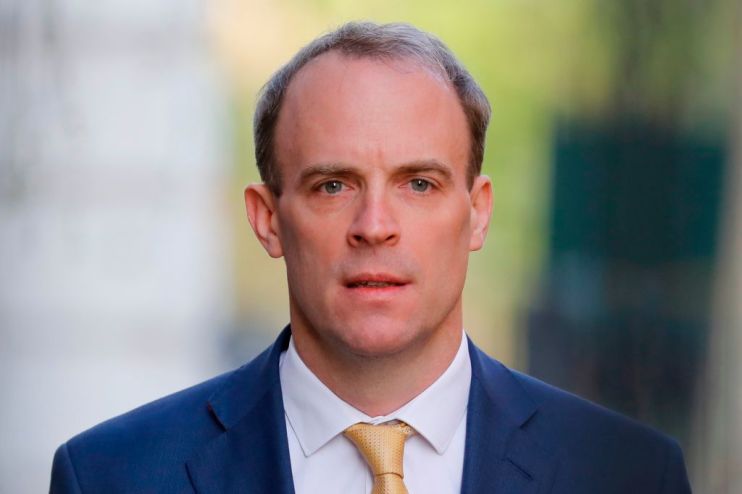Who’s in charge if Prime Minister Boris Johnson is incapacitated?

Prime Minister Boris Johnson was moved to an intensive care unit last night as his condition deteriorated after testing positive for coronavirus over 10 days ago.
The PM, who is being treated at St Thomas’ hospital in London, was transferred on Monday night as a precaution in case he needs a ventilator.
In the short term foreign secretary Dominic Raab will deputise for the PM “where necessary”. He will chair the government’s Covid-19 committee meeting for the second day running, but there is little idea of how long he’ll be in charge.
What does the constitution say?
Formal succession rules are reserved only for the monarch, as head of state, and not for the head of government. The prime minister’s role is a matter of convention rather than constitution.
Plans for what should happen if Boris Johnson is incapacitated or dies are murky given the lack of written constitution.
As the UK is a parliamentary democracy there is no need, under the unwritten constitution, to call an election in order for the new leader to assume prime ministerial powers.
Who will replace Boris Johnson?
Sign up to City A.M.’s Midday Update newsletter, delivered to your inbox every lunchtime
When Boris Johnson took over last summer he designated foreign secretary Dominic Raab as his “first secretary of state”. The title indicates seniority over Cabinet colleagues and marks him out as the Prime Minister’s stand-in. However, the title does not have royal assent.
Raab confirmed Johnson had passed decision-making powers to him yesterday. In an interview with the BBC he said: “The prime minister asked me as first secretary to deputise for him, where necessary, in driving forward the government’s plans to defeat coronavirus.”
Raab will chair the government’s Covid-19 committee meeting for the second day running. However there is little idea of how long he’ll be in charge.
Michael Gove, cabinet office minister, declined to say whether Raab would carry out Boris Johnson’s wider executive functions while he remained in intensive care.
Those roles include having the right to hire and fire ministers, as well as key duties relating to Britain’s national security.
Speaking to the BBC, Gove said: “The prime minister always remains the prime minister. There’s no suggestion of anything other than a great team spirit in this government as we all work together at this time.”
He added that the PM was a robust figure. “He’s a force of nature, a bundle of energy, determined to do the very best for the country he loves”. He added that Johnson had been given a “stripped back diary” over the past week following medical advice.
Who would get to vote for a new Prime Minister?
If a prime minister is sidelined, members of their party elect a new leader.
However, in an emergency, one of three senior Cabinet ministers would probably be asked to step in ahead of a party vote: the Chancellor, the home secretary, or the foreign secretary.
If Boris Johnson is incapacitated then Raab will take over in the interim before MPs vote for a new leader.
In the first stage Conservative MPs will put their names forward. MPs then vote in a series of rounds to whittle down the candidates. In each round, the candidates who don’t meet a certain threshold of votes are eliminated.
For all subsequent ballots, the candidate who comes last is eliminated, until there are only two candidates remaining. In the second stage, the party membership is balloted on which of the two they prefer.
The last two Conservative leadership elections have taken between six weeks and two months. However, given the chaos caused by the coronavirus outbreak and the government-imposed lockdown it may prove logistically impossible to follow the usual path. Boris Johnson’s successor could be announced in months rather than weeks.
Get the news as it happens by following City A.M. on Twitter.